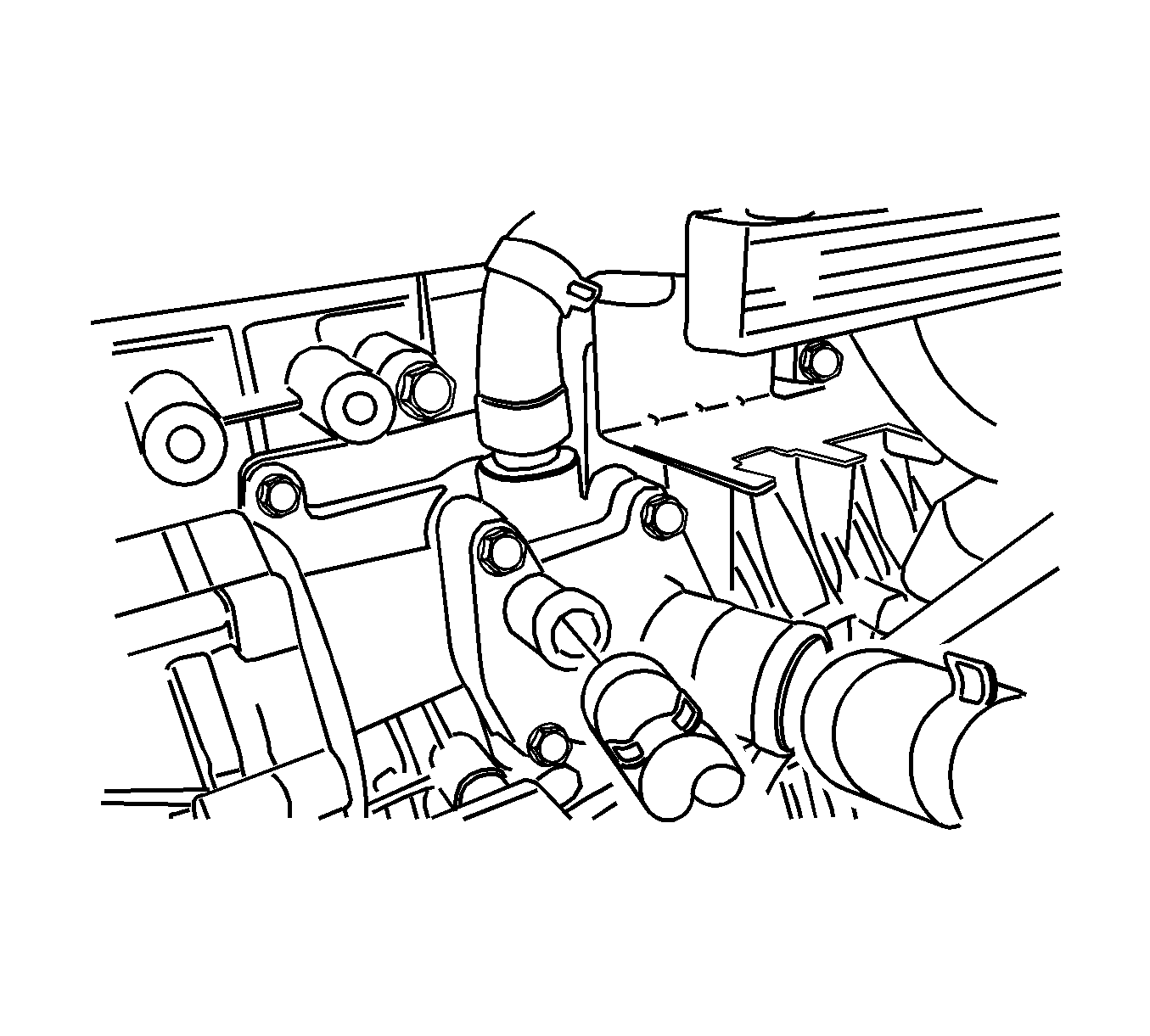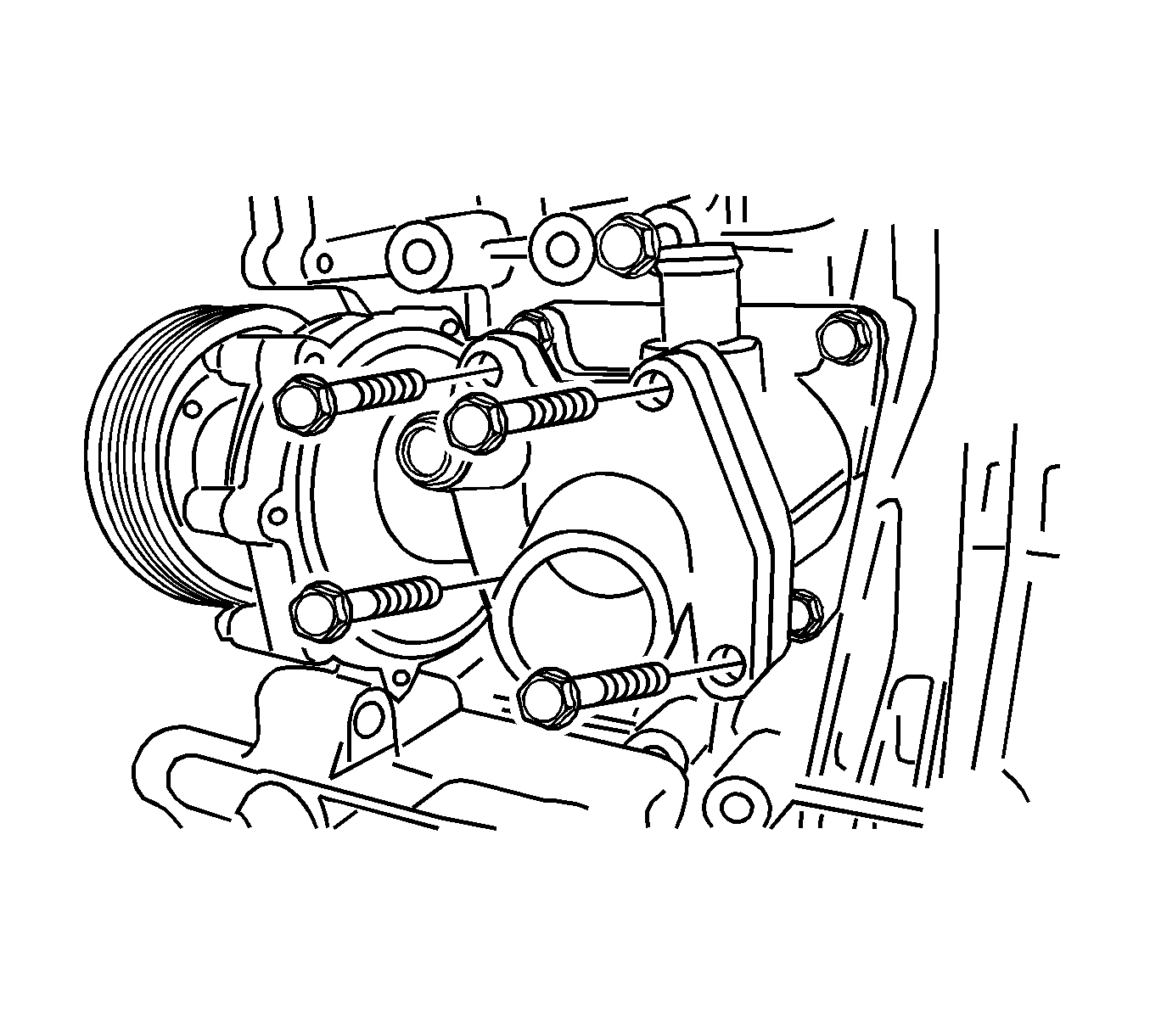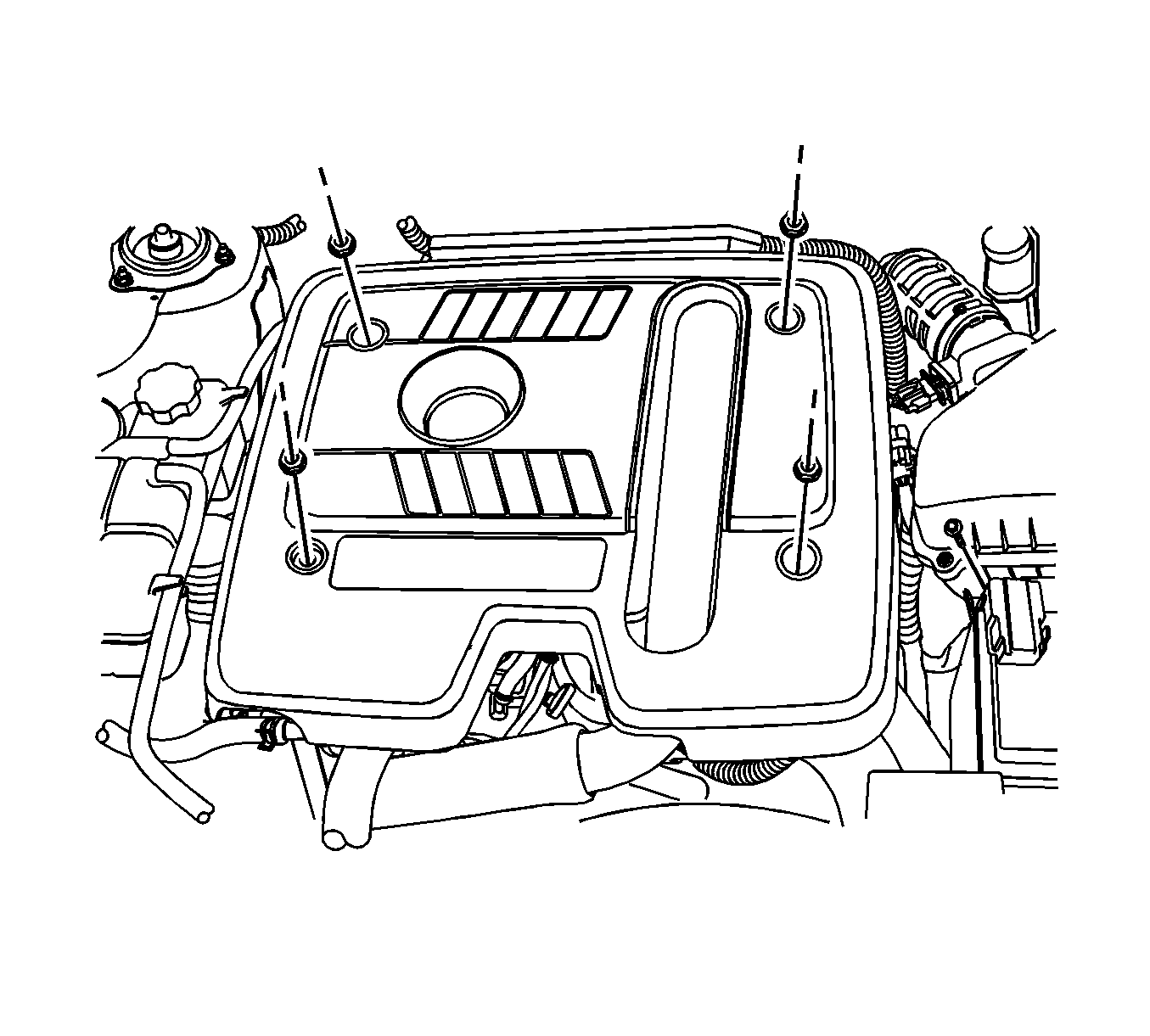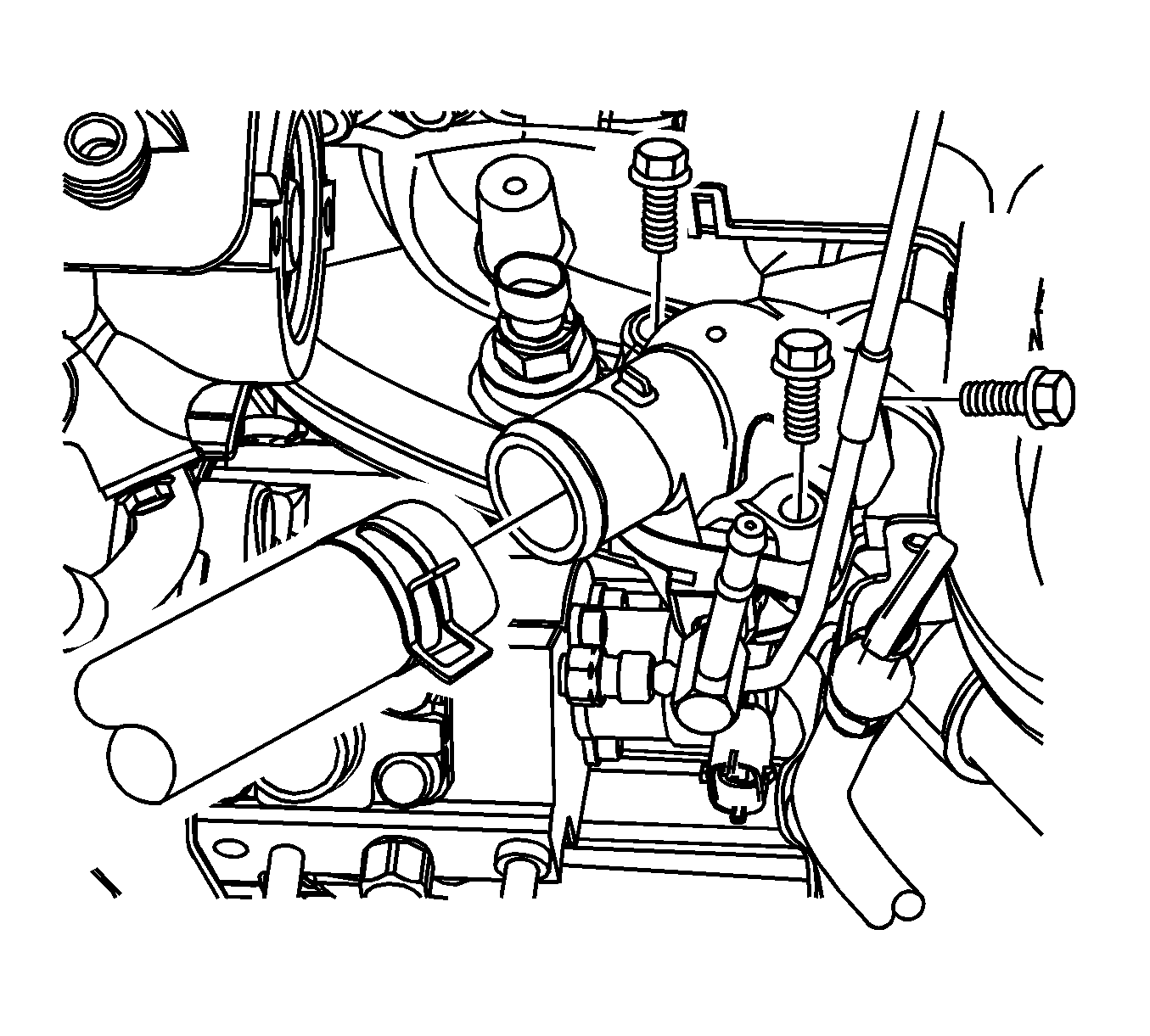Engine Coolant Thermostat Replacement Gasoline
Removal Procedure
- Drain the coolant. Refer to Cooling System Draining and Filling .
- Loosen the hose clamp on the upper radiator hose at the thermostat housing.
- Disconnect the coolant hose from the thermostat housing.
- Remove the mounting bolts that hold the thermostat housing to the cylinder head.
- Remove the thermostat housing from the cylinder head.
- Remove the O-ring seal from the thermostat housing.
- Inspect the valve seat for foreign matter that could prevent the valve from sealing properly.
- Inspect the thermostat for proper operation. Refer to Thermostat Diagnosis .
- Clean the thermostat housing and the cylinder head mating surfaces.

Caution: As long as there is pressure in the cooling system, the temperature can be considerably higher than the boiling temperature of the solution in the radiator without causing the solution to boil. Removal of the pressure cap while the engine is hot and pressure is high will cause the solution to boil instantaneously -- possibly with explosive force -- spewing the solution over the engine, fenders and the person removing the cap.

Installation Procedure
- Coat the sealing surface of the new O-ring seal with Lubriplate®.
- Install the new O-ring seal into the recess in the thermostat housing.
- Install the thermostat housing to the cylinder head.
- Secure the thermostat housing to the cylinder head with the mounting bolts.
- Connect the coolant hose to the thermostat housing.
- Secure the coolant hose to the thermostat housing with a hose clamp.
- Refill the engine cooling system. Refer to Cooling System Draining and Filling .

Notice: Refer to Fastener Notice in the Preface section.
Tighten
Tighten the thermostat housing mounting bolts to 10 N·m (89 lb in).

Engine Coolant Thermostat Replacement Diesel
Removal Procedure
- Drain the coolant. Refer to Cooling System Draining and Filling .
- Remove the engine cover. Refer to Engine Cover Replacement .
- Disconnect the radiator upper hose from the thermostat housing.
- Remove the fuel injection pump-to-rail feeding pipe retaining bolt.
- Remove the thermostat housing.
- Remove the thermostat with the gasket.

Caution: To avoid being burned, do not remove the radiator cap or surge tank cap while the engine is hot. The cooling system will release scalding fluid and steam under pressure if radiator cap or surge tank cap is removed while the engine and radiator are still hot.

Installation Procedure
- Install the thermostat with a new gasket.
- Install the thermostat housing.
- Install the fuel pipe-to-common rail retaining bolt.
- Connect the upper radiator hose.
- Install the engine cover. Refer to Engine Cover Replacement .
- Fill the cooling system. Refer to Cooling System Draining and Filling .

Notice: Refer to Fastener Notice in the Preface section.
Tighten
| • | Tighten the thermostat housing bolts to 23 N·m (17 lb ft). |
| • | Tighten the fuel pipe-to-common rail retaining bolt to 10 N·m (88.5 lb in). |

Caution: To avoid being burned, do not remove the radiator cap or surge tank cap while the engine is hot. The cooling system will release scalding fluid and steam under pressure if radiator cap or surge tank cap is removed while the engine and radiator are still hot.
